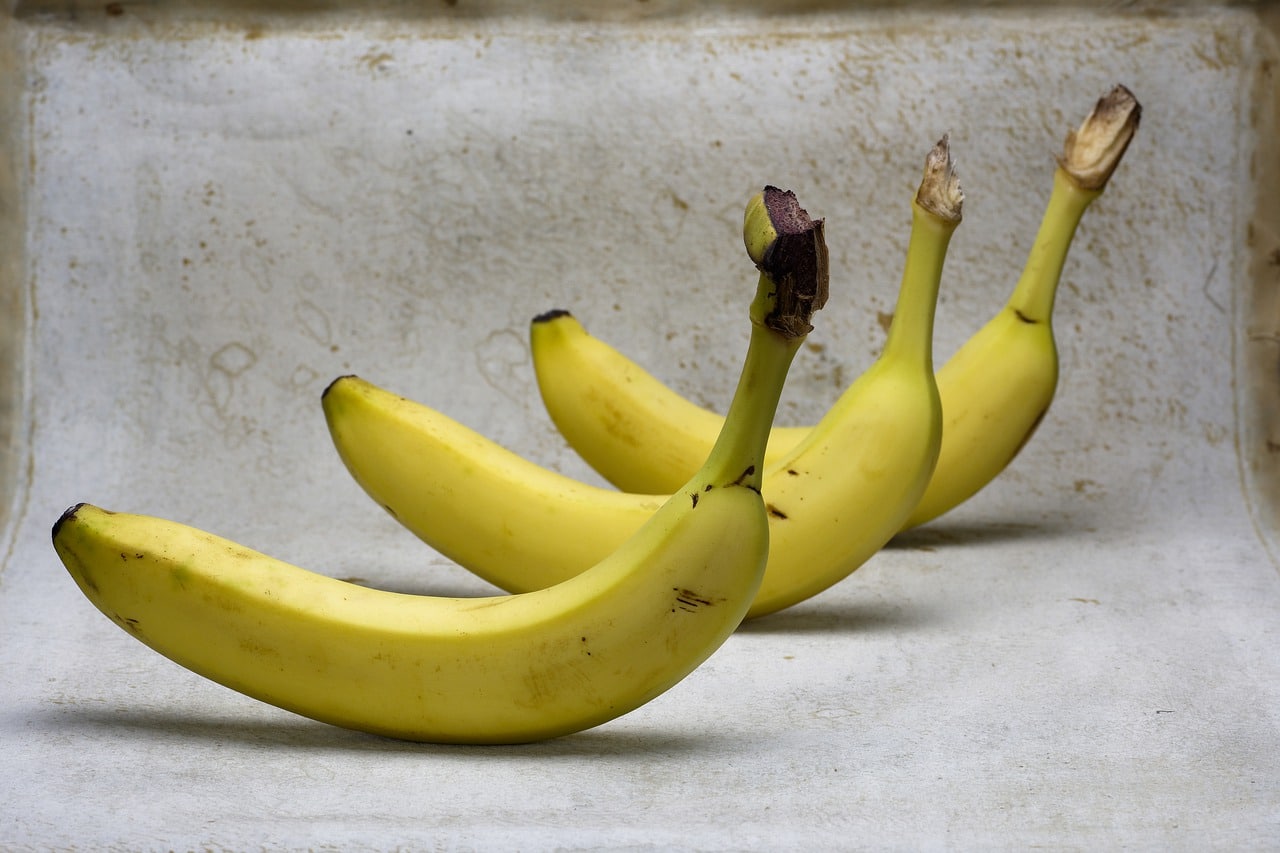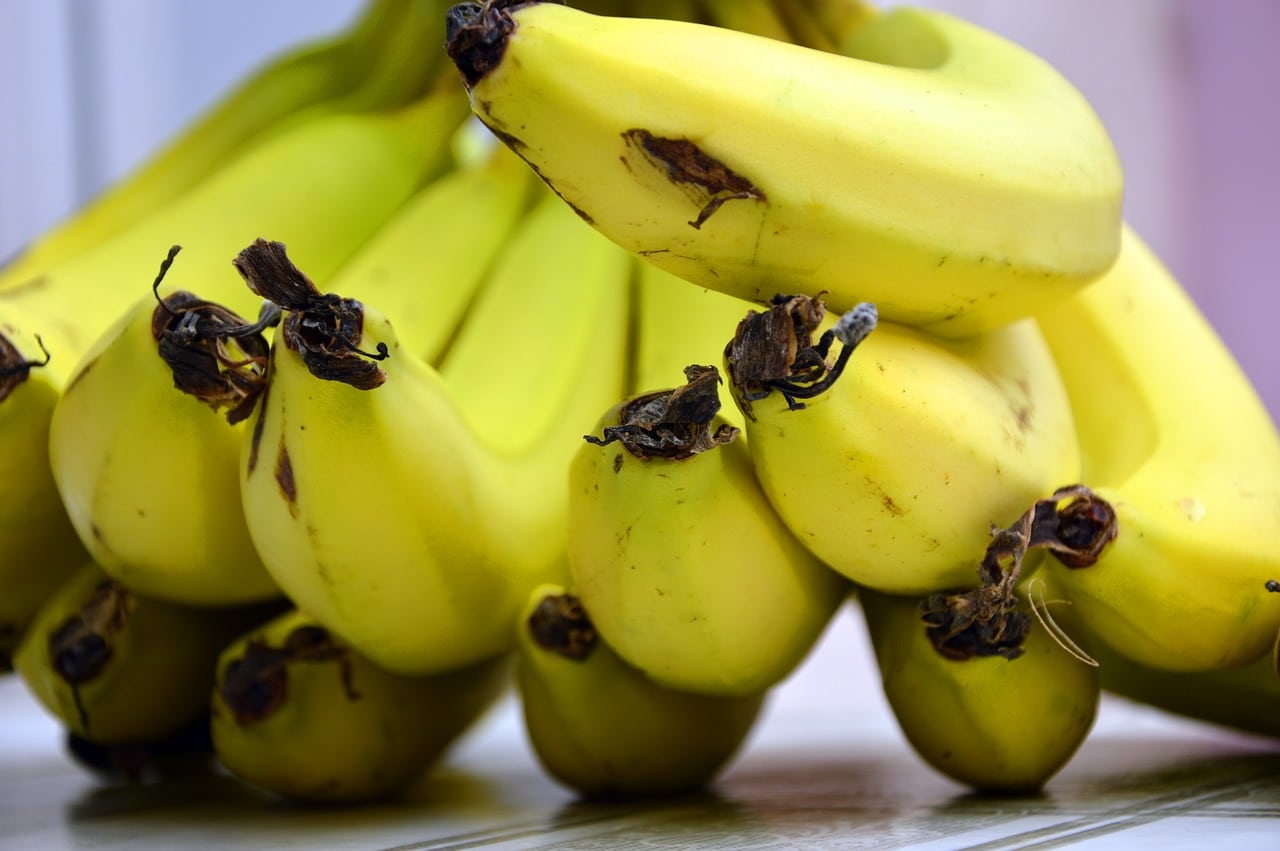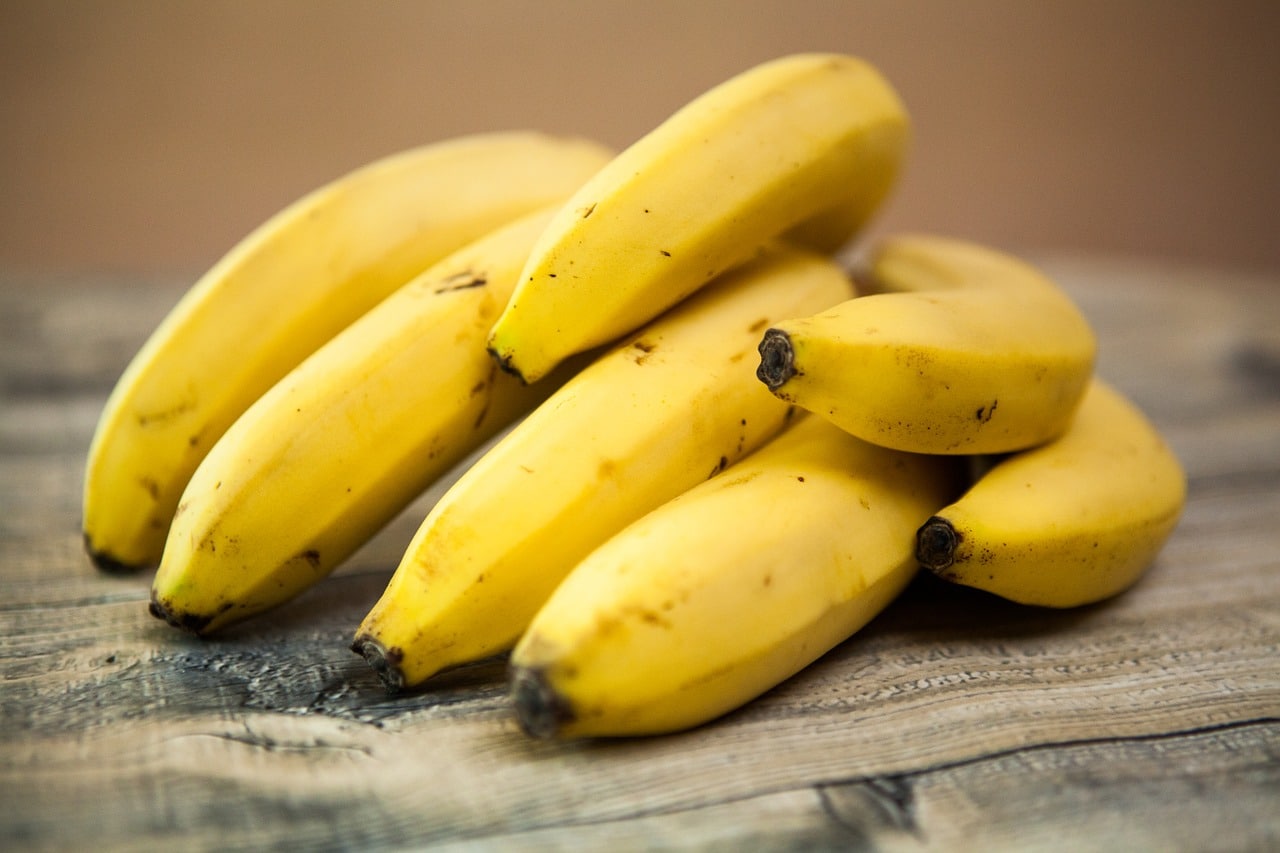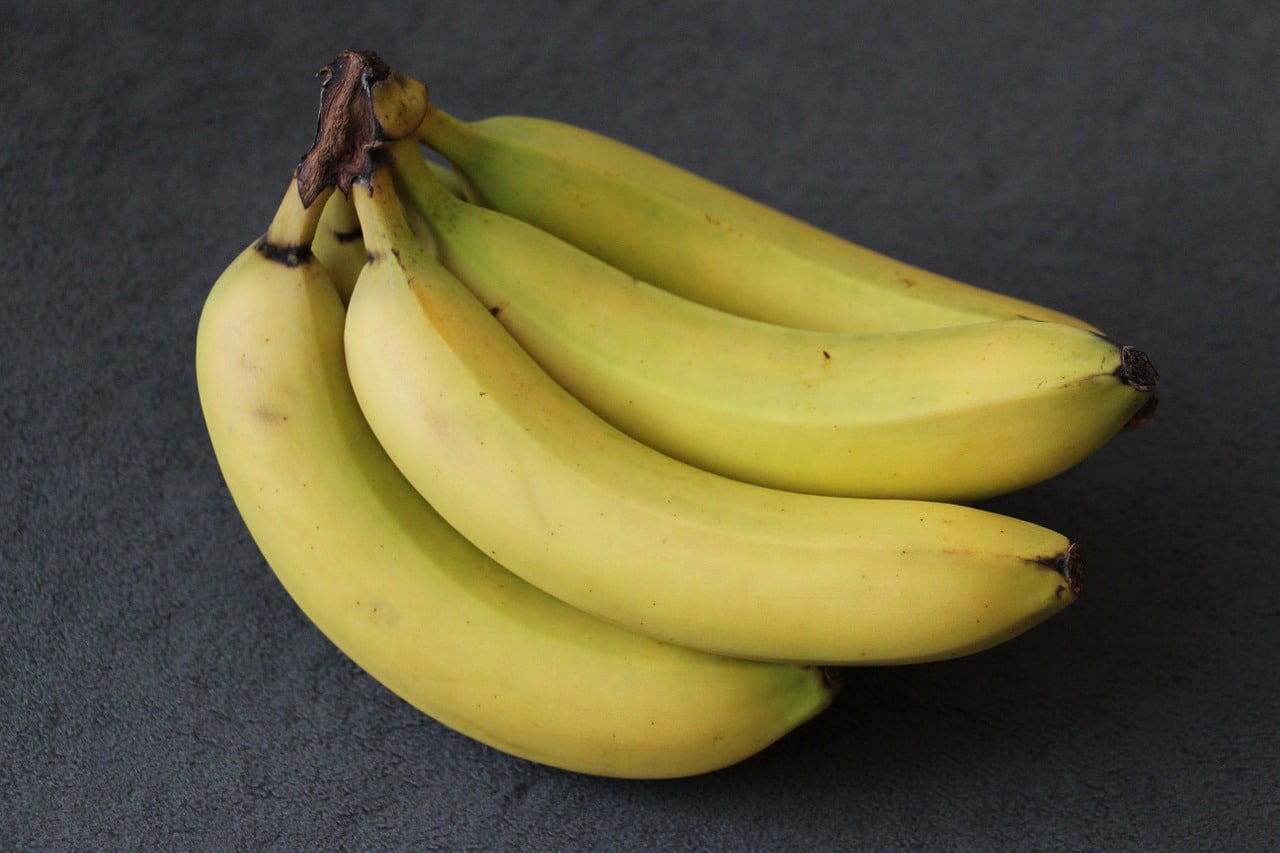As one of the most popular fruits across the world, it is self-evident that bananas also hold beneficial properties. Loaded with fiber and minerals, bananas are undoubtedly advantageous for one’s health. But have you ever wondered how beneficial bananas actually are? And what are the side-effects related to eating bananas? How many bananas can you really eat every day? It’s a well-known fact that every food item, which is a part of a balanced diet, must be consumed in a controlled and limited manner. Especially when it comes to food items such as bananas, which are highly concentrated with all different kinds of nutrients, you should know that they can easily disrupt your balanced diet. But first, let’s discuss some of its exceptional health benefits.
Table of Contents
Health Benefits Of Banana
1. Bananas Are High On Fiber
As the most important nutrient in bananas, the presence of dietary fiber can be an exceptionally beneficial factor for your digestive system. Dietary fibers are the non-digestible part of our food, thus a healthy dosage of these macronutrients can significantly slow down your body’s rate of digestion. In addition to that, fiber-filled food is harder to digest, which makes the stomach exert more work during its digestion further boosting your metabolism.

The fibrous nature of bananas makes them excellent options for boosting metabolism.
2. Bananas Promote Weight Loss
As mentioned in the previous point, the fiber-loaded nature of bananas makes them a beneficial food item for your digestive health, and better digestive health means better weight management as well. The metabolism-boosting capabilities of bananas aids in the burning of calories, hence eating banana not only adds up your calories, but it also burns a few. Furthermore, the dietary fiber is responsible for filling you up and preventing you from over-eating, which itself is the main cause of obesity or unregulated weight gain.
Summary
Health Benefits of fibre-rich Banana: The fiber-loaded nature of bananas makes them a beneficial food item for your digestive health, and better digestive health means better weight management as well.
3. Helps In Managing Blood Sugar Level
While the intake of dietary fiber is essential for boosting one’s digestive system, a high-fiber diet also slows down the rate of absorption of sugar molecules present in food. This ability of a dietary-fiber loaded banana gives the pancreas more time to secrete a significant volume of insulin. Insulin, as we know, is a hormone that is required for breaking down sugar molecules into energy. Hi-fiber foods have the ability to avoid sudden sugar spikes in the bloodstream because of this quality, and banana is no different.
Related Reading In Weight Loss
Super Foods To Reduce Belly Fat | Best Diet To Shed Tummy Flab
Benefits Of Low-Calorie Foods | Indian Low-Calorie Diet For Weight Loss
GM Diet | How To Follow The General Motors Diet For Healthy Weight Loss
Fasting For Weight Loss: Busting Popular Myths About Intermittent Fasting
Summary
Health Benefits of Banana: Hi-fiber foods have the ability to avoid sudden sugar spikes in the bloodstream, and banana is no different.

Due to its ability to slow down the rate of digestion, the consumption of banana also results in slower absorption of sugar molecules.
Also Read: Diabetes Diet: What To Eat To Manage Blood Sugar And Keep Diabetes In Control
4. A Great Source For Iron
One of the chief minerals present in high-quantity in bananas is Iron. This mineral is responsible for the production of hemoglobin, a cell in the bloodstream that is also known as the oxygen-carrying cell of the body. So, in other words, the consumption of bananas, a fruit that is packed with iron, can efficiently increase the volume of oxygen in your body. This further aids in the prevention of anemia, a disorder caused by the deficiency of iron.
Summary
Health Benefits of Banana: The consumption of bananas, a fruit that is loaded with iron, can effectively increase the volume of oxygen in your body.
5. Great For Regulating Blood Pressure
Almost everything that we eat contains some amount of salt. If not consumed appropriately, sodium, which is the first half of the salt’s chemical composition, can constrict the inner walls of the blood vessels, resulting in increased blood pressure. On the other hand, this is where the mineral content of bananas comes for your rescue. Apart from being rich in iron, bananas also contain a healthy dose of potassium, a mineral responsible for countering the effects of sodium. The intake of potassium can have a dilating effect on your blood vessels making sure that your blood pressure stays in check.

The high potassium content in bananas exert a dilating effect on the blood vessels that helps in the regulation of blood pressure.
6. More Benefits Of Its Potassium Content
As potassium is an essential mineral for keeping your blood pressure in control, it can also be indirectly beneficial in promoting your cardiovascular health. Especially during old age, a healthy consumption of potassium is linked with the preservation of one’s muscle mass, as this mineral is one of the key ingredients of the muscular tissues. In order to follow a diet that is rich with potassium, one must try to avoid processed foods (as most of them lack potassium), and the addition of bananas . to your diet is one way to boost potassium consumption.
Also Read: Top 9 Heart Friendly Foods
7. Bananas Could Work As A Part Of A Workout Meal
Another important macronutrient that can be found in bananas is carbohydrates. These essential dietary ingredients provide the body with the fuel that is required for exercising. Adequate consumption of carbohydrates lowers the risk of muscle cramps and soreness (some of the side-effects of extreme exercises) experienced sometimes after a heavy workout. Banana is also preferred by many as a pre-workout meal. It keeps you you energetic through the workout, allowing you to maximize your efforts and results.

The high cabs content in bananas can be quite beneficial in providing you with energy.
Though we have discussed some of the most important and key reasons that make bananas a healthy addition to your diet. Here is a short list of some other well-known health benefits of this fruit that’ll make you certain of its beneficial capabilities.
- Banana consumption can effectively counteract calcium loss during urination, which further helps in the maintenance of one’s bone structure and keeps them strong and dense.
- The naturally antacid nature of banana can help in relieving you from heartburn, and acid reflux.
- Bananas are considered to be great for your digestive tract and can also aid in the restoring of electrolytes after a bout of diarrhea.
Side-Effects Of Banana
The knowledge of the benefits linked with bananas is just one side of the story, to know the adverse effects of its unregulated consumption is equally important. Let’s take a look at some of its side-effects:
Side-Effects of Bananas
1. May Cause Digestive Issues
Yes, the fibrous nature of bananas can be extremely beneficial, but only when its consumption is in a limited quantity. Higher consumption of fiber can, however, cause sometimes cause major digestive issues such as diarrhea, bloating, and in some cases, it can even lead to weight gain.
2. Can Cause Headaches
Tyramine, a substance found in banana, is often associated with migraine attacks. And though the banana peel has more tyramine as compared to its flesh, you may want to check if your recurring migraine attacks are linked to eating bananas.
3. Can Increase You Blood Sugar Level
As mentioned previously, the fibrous nature of the banana can help in lower the glucose content in the blood. However, banana itself has a medium glycaemic index, hence it is advised to keep your banana consumption in check, as it can ultimately spike up your blood sugar level. This is particularly true for people who are suffering from Diabetes or are diagnosed as pre-diabetic.
A banana is an extraordinary fruit that has been a part of our diet since the time it was discovered, thus is clear that we have long been well aware of its good and some not-so-good qualities. About one to three bananas per day could be considered as an average intake depending on your levels of activity, fitness and lifestyle habits. And as always, don’t forget to add other nutritional fruits to your diet as well.
FAQs
What are some other ways of including bananas in your diet, except eating it as a fruit?
Bananas are extensively used across the world in many baking recipes. Overripe bananas are highly preferred over freshly bought ones, as experts believe, the overripe state of the fruit lends in natural sweetness and moisture to the recipe. Some of the most common baked products that you can make by adding bananas are- muffins, cakes and cookies. You can also make a whole range of non baked items like ice cream, pancakes, crepes and try a range of healthy recipes like smoothie, banana shake and energy or protein bars. Some lip smacking desserts are also popular, like, banana chocolate mousse and banana pudding. Fried recipes with bananas are quite popular too, like- banana fritters, raw banana pakore, raw banana kebab and the most loved, banana chips.
Can you eat Banana flowers?
Deep magenta in color and common to the Southeast Asian cuisine, Banana flowers are commonly used as vegetables for cooking in countries such as Laos, India, Thailand, China, Burma, Philippines, Sri Lanka, and Vietnam. These beautiful flowers hang like tear-drop-shaped pendants at the end of banana clusters that grow in tropical climates. Banana flowers have abundant uses in the kitchen, including soup, stir fries, meat and vegetable stews and salads. The inner petals, or bracts, are the edible parts. Eaten straight off the cutting board, they are starchy and bitter but once soaked in a lemon juice and water mixture for half hour then rinsed, they are leek-like, both in substance and taste. They end up being thin with a slight crunch and delicate to taste. Banana flowers are high in vitamins A and C and have modest amounts of calcium and iron.
What is the best way to store Bananas?
Bananas are best stored at room temperature and will keep for 3 to 5 days. To slow them from ripening too quickly, wrap the banana stems with plastic wrap. If you want to ripen them more quickly, keep them in a closed container or with other fruit, such as an apple.
Do bananas induce cough?
According to Ayurveda, kids or adults who are prone to cold, cough or are asthmatic should avoid bananas in the evening and night as it produces toxins in the digestive tract. This increases the mucus and phlegm formation and leads to chest congestion.


